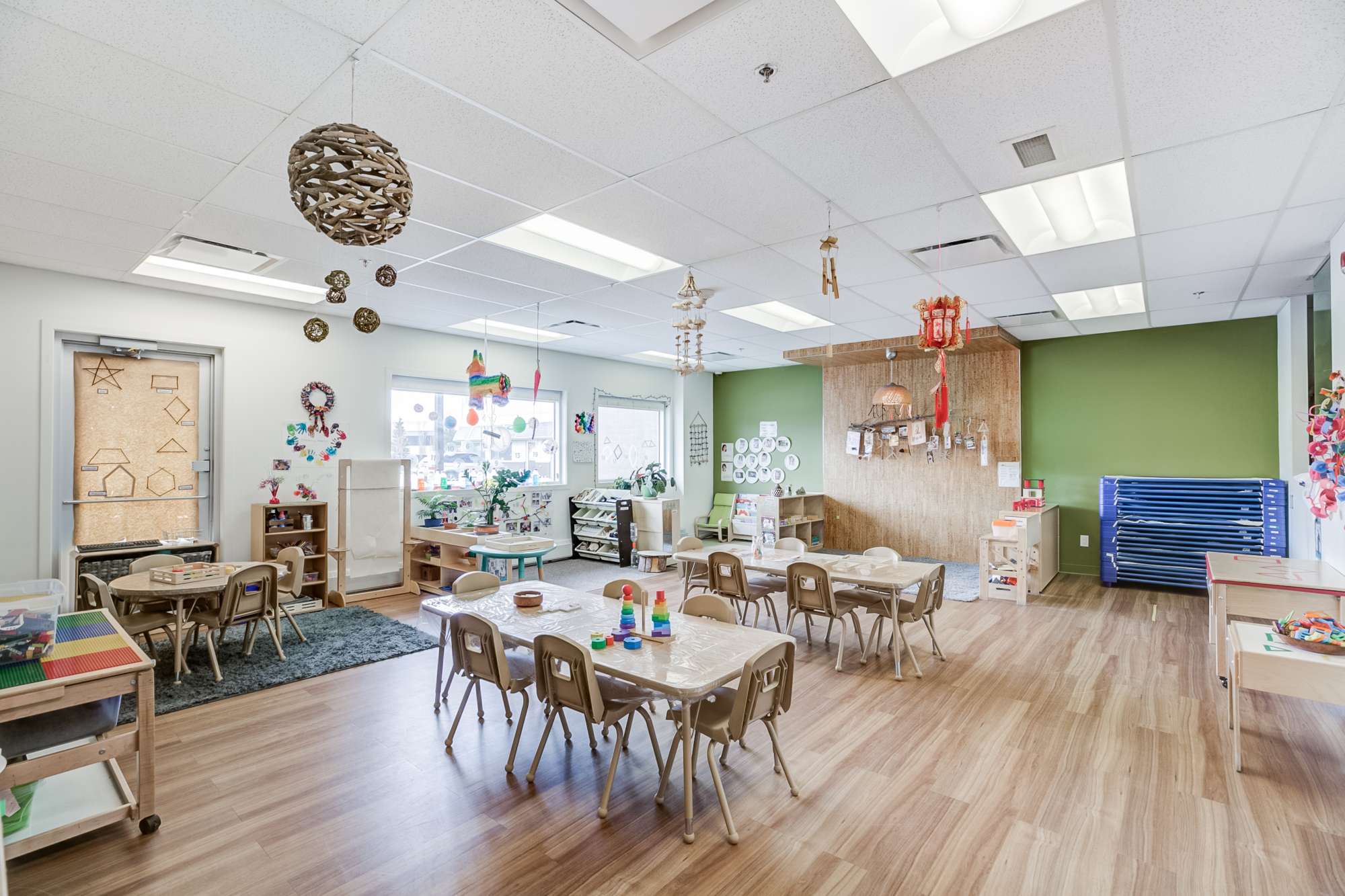Comprehending the Significance of Childcare for Your Toddler's Social Development and Understanding Knowledge Through Engaging Tasks
The significance of day care in shaping a kid's social advancement and learning can not be overemphasized, as it provides an organized environment loaded with engaging tasks that are pivotal for very early growth. As we discover the multifaceted advantages of childcare, one need to take into consideration exactly how these fundamental experiences influence a youngster's future social interactions and total growth.

Benefits of Social Interaction
Social interaction plays an important function in the developing trajectory of young children, working as a structure for necessary social abilities. Involving with peers enables kids to practice interaction, learn to share their feelings, and create compassion. Through shared play and teamwork, they begin to recognize social standards, such as taking turns and sharing, which are essential elements of effective interpersonal relationships.
Moreover, social interactions add to cognitive development. As toddlers communicate with their peers, they boost their language abilities, broaden their vocabulary, and boost their capacity to express thoughts and sensations. This exchange of ideas fosters crucial thinking, as youngsters discover to work out, solve troubles, and navigate conflicts.
Additionally, social communication promotes psychological policy. Direct exposure to various social scenarios helps young children recognize and manage their feelings, ultimately causing higher strength and adaptability. The capability to create friendships and accessories additionally enhances their feeling of belonging and self-worth, which are essential for total well-being.
Value of Involving Activities
Engaging tasks are essential for promoting a revitalizing environment that enhances young children' social growth. These tasks not only captivate children's focus but also promote energetic engagement, allowing them to explore their environments creatively. With play-based discovering, kids develop important skills such as analytic, participation, and empathy, all of which are essential for developing healthy and balanced partnerships with peers.
Taking part in engaging activities, such as group games, art projects, and interactive storytelling, encourages toddlers to express their ideas and feelings. This expression is important for emotional knowledge and assists them comprehend the point of views of others. When kids involve in these tasks together, they learn to negotiate duties, share sources, and work together, which are fundamental aspects of social interaction.
Additionally, a well-structured setting that consists of revitalizing and varied activities helps in keeping toddlers encouraged and concentrated. This inspiration fosters a love for learning and exploration, laying the foundation for future academic experiences. Eventually, involving activities in day care setups are crucial fit social abilities, preparing toddlers for effective communications beyond the class, and supporting their general advancement throughout these formative years.
Developing Communication Abilities
Effective interaction skills are critical for toddlers as they navigate their very early social communications. In a day care setting, youngsters are subjected to varied social situations that encourage spoken and non-verbal communication. Involving in conversations with peers and caretakers promotes language growth, allowing kids to reveal their emotions, thoughts, and requirements extra successfully.

Moreover, childcare settings offer opportunities for kids to observe and resemble communication designs of their peers and adults. This observational knowing is vital as youngsters choose up on social cues, tone, and body movement, which are necessary components of reliable communication.
Fostering Freedom and Confidence
As kids fine-tune their communication abilities, they at the same time start to explore their freedom and develop confidence in social setups (daycare near me for infants). Childcare offers an organized environment where youngsters can engage in different tasks that motivate freedom. From choosing their very own activities to joining group tasks, these experiences encourage young children to choose and express themselves
In a daycare setting, children are usually presented with opportunities to fix problems separately, whether it's identifying exactly how to share toys or fixing conflicts with peers. This cultivates look what i found crucial thinking and advertises self-reliance. In addition, caretakers support this advancement by providing favorable support and guidance, helping kids to navigate social communications with self-confidence.

Group activities, such as participating games or joint art jobs, help find more info with teamwork and educate young children the relevance of collaborating. Through these interactions, youngsters discover to connect their ideas and feelings, even more enhancing their self-worth and social skills.
Eventually, cultivating freedom and confidence in childcare not only prepares young children for future social settings yet additionally lays the groundwork for a resistant attitude, furnishing them with vital life abilities as they continue to discover and expand.
Building Lifelong Knowing Structures
A solid foundation for long-lasting learning is vital for kids, as their early experiences form their perspectives in the direction of education and interest. Childcare environments play a critical function in this developing stage by providing organized possibilities for expedition and interaction. Engaging tasks, such as group play, arts and crafts, and interactive storytelling, stimulate cognitive growth while urging social communication.
Through these experiences, kids learn essential skills such as analytic, interaction, and cooperation. They are introduced to the concept of learning as a satisfying, collective process as opposed to a chore, which promotes a favorable mindset in the direction of education. Direct exposure to diverse viewpoints and peer communications in day care setups improves psychological knowledge, promoting compassion and resilience.
Caregivers and teachers likewise contribute dramatically to developing this foundation by modeling inquisitiveness and enthusiasm for discovering. By urging inquiries and assisting in conversations, they develop an atmosphere where children really feel secure to reveal themselves and explore originalities. Inevitably, the combination of helpful connections and engaging straight from the source tasks in childcare settings lays the groundwork for a lifelong love of understanding, furnishing toddlers with the skills and attitude required for future scholastic and individual success.
Conclusion

The significance of daycare in shaping a young child's social growth and discovering can not be overstated, as it uses an organized setting filled with appealing activities that are crucial for early growth.Social interaction plays a vital duty in the developmental trajectory of toddlers, offering as a foundation for important social abilities. When toddlers involve in these activities with each other, they discover to work out roles, share sources, and collaborate, which are fundamental facets of social communication.
Inevitably, involving tasks in daycare settings are critical in forming social abilities, preparing toddlers for successful communications past the classroom, and nurturing their overall advancement during these developmental years.
Ultimately, the advantages of interesting activities in day care settings play a significant role in preparing toddlers for future social interactions and challenges. daycare near me for infants.